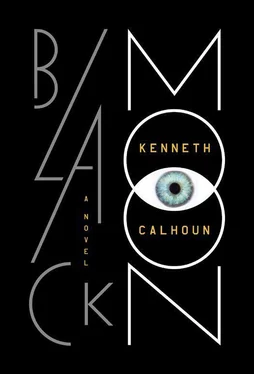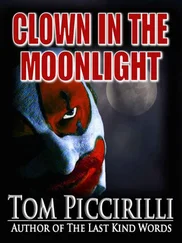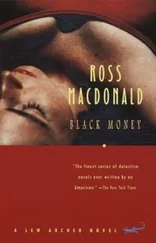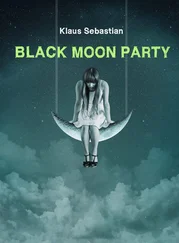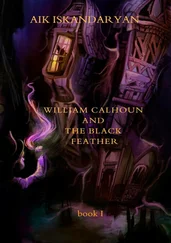They entered the house in search of the car keys. Light flooded in the window, revealing the cluttered floors. Couch ripped open, TV facedown in the debris. Glass crunched under every step. Holes had been kicked in the walls.
This could be my house, she thought. She had been carrying around the image of home as she had left it. Meticulous, the way her mother liked it, needed it to be. Both parents sitting on the couch in front of the TV, or out on the patio, tending to something on the grill. Even the bizarre picture Chase had painted—the walls of the house filled with bees that produce a sleep-inducing drone—was better than what she was seeing now. And that was just a hallucination, she reminded herself.
“If we had the Internet,” Lila said, “we could look up how to hot-wire a car. We could look up anything.”
“Not anything,” Felicia said.
There’s so much they couldn’t tell us, she thought. Still can’t tell us. The answers aren’t out there. At the center, all Kitov and his team of geniuses could do is come up with a sad workaround. Hot-wiring our heads, since they can’t find the keys.
THE smell came in stinging little hints at first, then got overwhelming as they approached the interstate on foot. Felicia pulled her shirt up over her mouth.
“Where is it coming from?”
“It’s a dead thing,” Lila said.
They started across an overpass where the sunken freeway cut through the developments, embedded four stories down. Halfway across, Felicia looked east and west. Not a car was moving on the eight lanes of grooved concrete.
The smell rising up around her was like a physical presence. She retched and ran to the railing, intending to vomit over the side. That was when she saw them. Piled across the lanes below, a barricade of bodies. A broken tangle of limbs and torsos, heads at the heart of dried eruptions. She staggered to the other side: more.
Suicides. Even at the center they had seen it begin. Annika throwing herself off the bluff onto the rocks below. That was a sure thing. This didn’t seem high enough and spoke to the desperation of the dead below.
Blocks up she saw another overpass and the dark low pile beneath it. Barricades of bodies all the way into the city.
Lila was running to the far end, crossing over, her pack jangling loudly. Felicia watched as she tore off the owl mask and vomited onto the sidewalk. She saw the side of the girl’s face, her long hair, before she herself was doubled over, the contents of her stomach splashing over her dusty shoes.
By the time she reached Lila, the girl was wearing the mask again.
AS evening approached, Felicia started to regret wasting so much time looking for car keys in abandoned homes. She recognized that they still had a few miles to go, that they wouldn’t make it before downtime hit unless they ran.
“Where’s a safe place to spend the night?” she asked Lila.
“In a house,” the owl-head said, “since there’s two of us. Someone can keep watch.”
They had seen about a dozen living people all day, most of them just shambling along. Some had called out to them, or headed their way, but most just looked past them. Eyes blinking, mumbling. Seeing visions only the sleepless see.
“People actually seem pretty harmless out here,” Felicia said.
“They wouldn’t be if they caught us sleeping. They would seriously try to kill us.” Lila said she had seen it happen to a girl who was found sleeping in a tree house, killed by a bunch of kids looking for firewood.
“They hit her with hammers and axes,” she said, “and rocks. Even when she fell out of the tree and was dead on the ground I bet they kept doing it. I don’t know really because I ran away but I bet. They go bonkers when they see sleepers.”
She was quiet a long time. Felicia wanted to see her face, to know what was going on in that dark globe. She watched her—small shoulders and skinny arms, pants sagging in the seat—as they crossed the vast parking lot of a supermarket.
They peered in through the glassless windows. It was now just a dark cave, picked clean by looters. Rows of empty shelves disappearing in the black space. Someone was sniffling somewhere in the darkness and they moved away from it. They went into an abandoned ice cream store.
“I’ll take a triple,” Felicia said to the invisible worker. This was where she and Chase had spent a lot of her waitress money. Memories of those early days flashed through her. The two of them on her scooter, his arms around her.
“I’ll take a banana split!” Lila yelled.
They sat at the table and ate power bars instead. Lila got up and went around the counter. She turned on the faucet and water rushed into the stainless steel sink. “See?” she said. “There’s still water here. We ran out at home so we had to scoop it from the aqueduct. It was so completely vile.”
They drank out of a plastic pitcher and sat looking out the window in silence.
“I think this was hers,” Lila said.
“This what?”
“This,” she said, pointing to the mask. She explained how she hid out in a girl’s room, wore some of her clothes. Found the mask in her closet. She was a cheerleader, Lila said. “I could tell we wouldn’t have been friends. But we could both sleep so maybe we would have found each other, like you found me.”
Felicia was confused. “Wait. Who are we talking about again?”
“The girl,” Lila said. “The one they killed.”
THEY decided to find a house and try to lock themselves in it.
In a quiet cul-de-sac, they picked one that had a For Sale sign, the thin post hammered into the lawn. The uncut grass reached up for the sign, promising to eventually conceal it. Most of the windows along the front of the house were still intact. As with many of the other houses, dying orange trees stood in the front yard, which was littered with clothes, papers, and a weave of scattered belongings. There were For Sale signs all up and down the street.
Inside, they checked everywhere for sleepless people hiding in closets and showers. The task made them jittery. Lila took Felicia’s hand and squeezed it as they slowly pressed forward. They jumped at everything, especially upon glimpsing a long coat hanging from a hook on a door. They screamed, then laughed nervously.
Then Lila tore it off the hook and threw it to the ground. She kicked it around the room, saying, “Wake up! Come on, up and at ’em! Rise and shine!”
Now they really laughed, collapsing to the carpeted floor.
LILA took a string of empty cans from her backpack and pulled it tight at the top of the stairs. She strung up an elaborate web of trip wires all the way down the stairs, hanging the bells, cans, and jangly ornaments she had collected for her pack of noisy things, as she called it. She did this with professional efficiency, admiring her work before retreating to the room, where she hung a wind chime on the doorknob as a final precaution.
“That’s what I do now,” she said.
As the darkness set in outside, they were camped out in the master bedroom behind the locked door. They lounged on mattresses that they had to drag up from the bottom of the stairs, where someone had tossed them. A Santa Ana was brewing outside and occasional gusts caused the house to shudder.
Felicia told Lila to sleep while she kept watch.
“Why don’t we both sleep?” she asked. “I think we’re safe in here.”
Felicia said, “I can only sleep at certain times. From exactly ten to seven, actually.”
“What?” Lila asked, like it was the most ridiculous thing she had ever heard. “Why?”
“Well, I have an implant that makes me get to sleep.”
“An implant?”
She explained how it worked.
“There’s no way to wake me up, once I’m under. It’s not like normal sleep.”
Читать дальше
